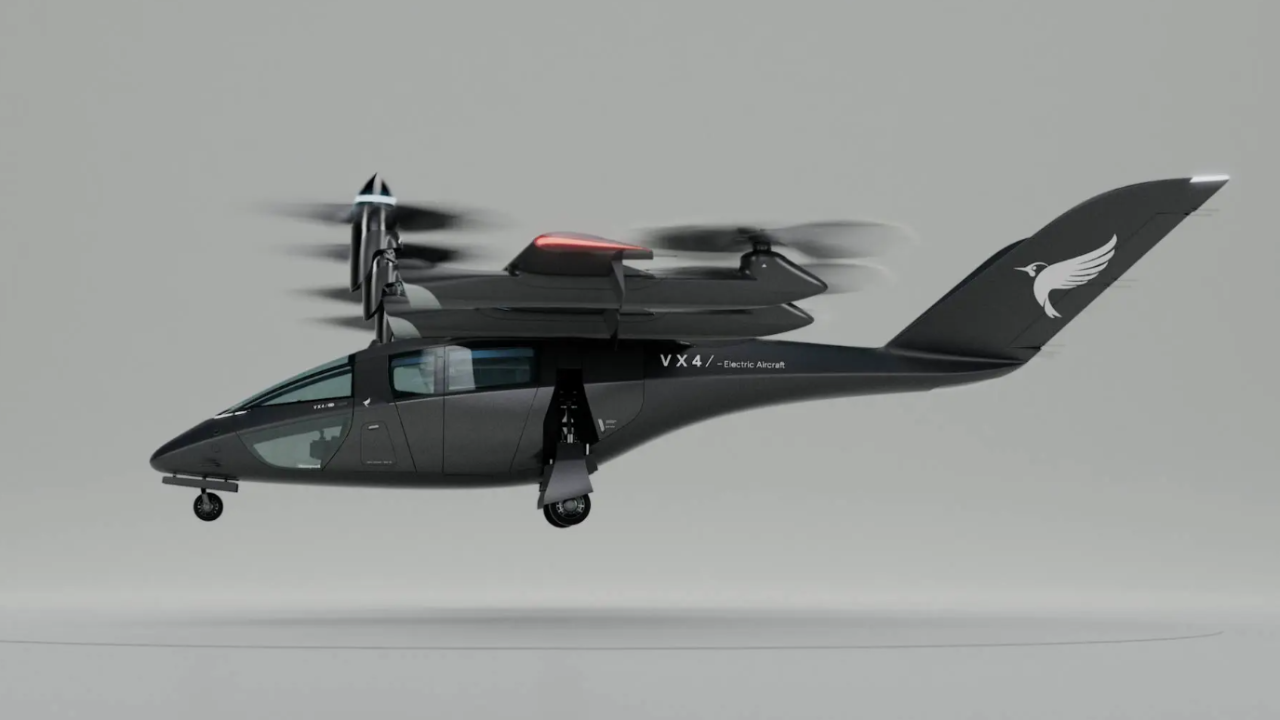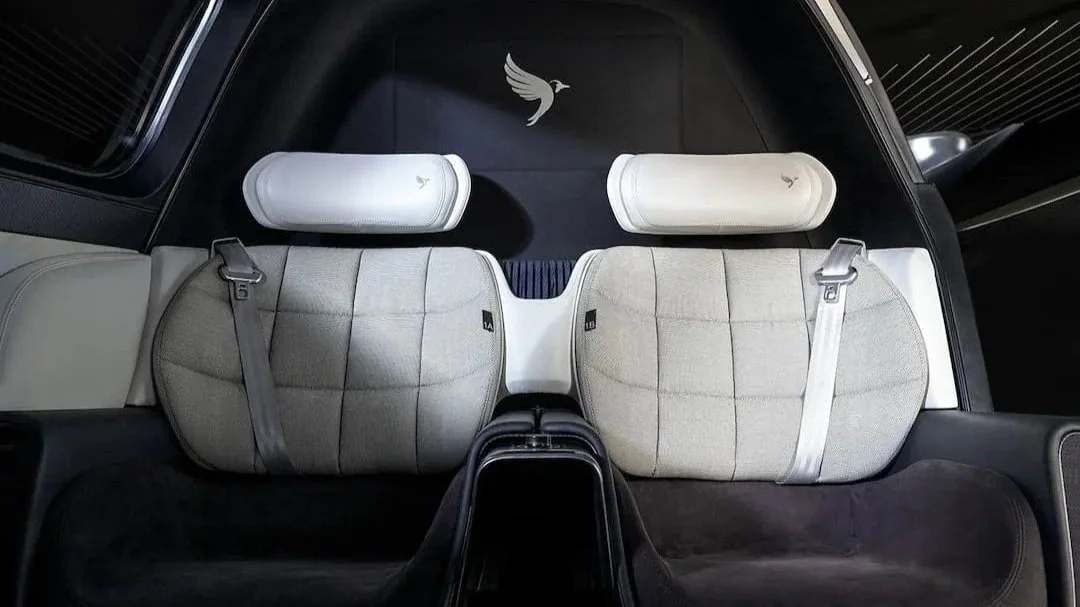Britain Gets Its First Flying Taxi
Image Credit: Vertical Aerospace.
The future is here! And it's attempting a vertical takeoff from a field in the Cotswolds, in the Old Blighty, which is a rather ambitious place to launch a revolution. We've been promised flying taxis since roughly "The Jetsons" made it look cool. And now, Britain has apparently made one that actually flies.
When news fluttered across my desk that Britain's first-ever electric flying taxi, the rather clinically named VX4, had completed its maiden voyage outside of a test paddock, my eyebrows shot up faster than this contraption supposedly climbs.
Image Credit: Vertical Aerospace.
It turns out that the VX4 isn't just some billionaire's new garden ornament. Hatched by a Bristol-based outfit called Vertical Aerospace (points for a name that does what it says on the tin), it recently zipped across the Cotswolds. Not in some super-secret, hush-hush test zone, but in normal airspace. If you need a perspective, that's like letting your toddler drive the family saloon down Main Street for the first time.
The VX4 is an electric vertical takeoff and landing (eVTOL, for those of you collecting acronyms) aircraft. Essentially, it's a giant drone that's decided it's too good for delivering parcels and fancies itself a people carrier. It's designed to carry one highly skilled (and presumably very calm) pilot and four passengers.
Image Credit: Vertical Aerospace.
Performance-wise, Vertical Aerospace claims this electric sky-chariot can hit speeds of up to 150 miles per hour and has a range of about 100 miles. That's enough to get you from, say, one traffic jam to another, but in the sky! Dimensions? It sports a wingspan of around 49 feet and is about 43 feet long. So, not exactly something you'll parallel park outside the local supermarket. Power outputs? They're a bit coy, but whispers suggest "over 1 Megawatt" from its array of electric rotors. That's a lot of oomph, enough to make your hair stand on end, if the vertical takeoff hasn't already.
The chief test pilot, a chap named Simon Davies, naturally said it was "truly special" and a "career highlight." He also mentioned it was "safe and was an absolute pleasure," "responsive, smooth, simple to operate and the sound level from the propellers is quiet and pleasant in the cockpit." Well, he's not going to say it flies like a brick with a vendetta, is he? Every new electric vehicle, whether it has wheels or wings, is always "surprisingly quiet" and "effortlessly smooth," according to the people trying to sell it. Still, good on him; it takes serious guts to be the first one to properly open the taps on these things.
Image Credit: Vertical Aerospace.
The British government, never one to miss a chance to be seen on the cutting edge (even if it's just cutting red tape with a very expensive pair of scissors), has chucked a cool $25 million into making flying taxis a thing. Their grand vision? Commercial drone and flying taxi services buzzing about by 2028. Just a few short years away! I will believe that when the commute from Brighton to Heathrow really does take 20 minutes, as some industry experts boldly predict. Right now, it takes longer than that to find a decent parking spot at Heathrow.
To help this dream take flight, they've even set up a "Regulatory Innovation Office." Its job? To "cut red tape." Because, as we all know, the best way to speed things up is to create another office. I'm sure their meetings are electrifying. Perhaps they'll serve tiny quiches delivered by miniature drones.
Image Credit: Vertical Aerospace.
And it's not just the Brits getting their propellers in a twist. Over here, in the good old US of A, Joby Aviation, another player in this high-stakes game of aerial tag, has teamed up with Virgin Atlantic. Their electric air taxi also aims to carry a pilot and four passengers, but they're boasting speeds of up to 200 mph. So, a bit nippier. They're eyeing up hubs at Heathrow and Manchester, promising "seamless, zero-emission, short-range journeys." The race to the skies is well and truly on.
Back in Blighty, even local MPs are getting excited. One from Norwich is keen to "make East Anglia the heart of aviation innovation" and invited the transport minister for a joyride in an electric plane. I can see it now: politicians queuing up for photo ops in these things, all while assuring us this is the future of public transport, conveniently forgetting to mention how much a ticket might actually cost. Will it be like Concorde – a fancy toy for the rich – or genuinely accessible? My inner skeptic is having a field day with that one.
Image Credit: Vertical Aerospace.
UK Transport Minister Mike Kane insists the government is committed to "maximize the benefits of future flight technologies." Grand words. And honestly, a part of me, the part that still gets a boyish thrill from anything that moves fast and makes a cool noise, is genuinely excited. Electric vehicles are already changing our roads, for better or worse, so why not our skies?
Flying taxis are no longer just science fiction. They're real, they're electric, and they're coming to a patch of clear airspace near you… eventually. Will they solve all our transport woes? Probably not. Will they be hilariously expensive at first? Almost certainly. Will there be teething problems? Oh, absolutely. But is it a bold step into a new, potentially quieter, and hopefully cleaner era of getting from A to B? You betcha.






